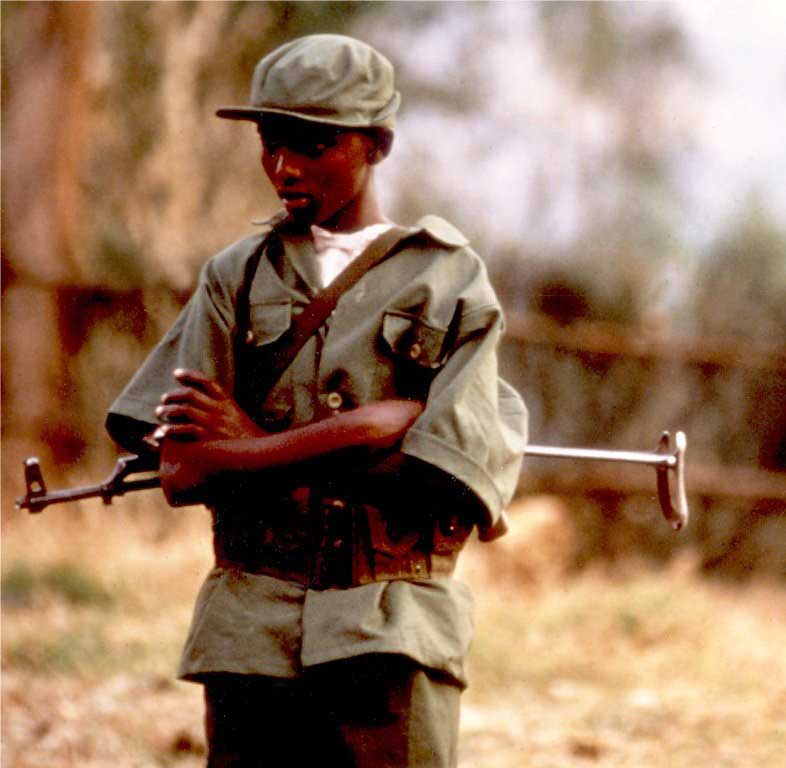
Child soldiers should be the simplest of all simple issues to solve. There are no arguments in favour of using children as soldiers. There is no defence of the brutal dehumanising treatment that must be meted upon them in order for them to accept the role. There is no system of reason, of justice, of community that can support their existence. And yet they exist. They were abducted, sheltered, trained and punished by killers, in a situation of war so complex that to attempt to understand is to become brutally entangled. They’re older now, and even further from the unconditional victimhood of Ceausescu’s orphans or the wide eyed, swollen bellied victims of the Ethiopian and Sudanese famines. But they too have been created by the political activities around them. They too had no agency in their lives.
Where are these young men and women to go? How are they to process the horror of their stolen childhoods in a country that is yearning for peace so ardently that it forgives without acknowledgement? Easier to forgive and forget, than to feel what these children have suffered and to face what they have done. Yes, the children must be forgiven, just as they must forgive those who abducted them, and forgive themselves. But they also need a new vocabulary, one with currency in a society that is moving forwards. They need something to offer in peacetime. Skills, a trade, literacy. Self-respect. Forgiveness has nothing to do with carrying on as though nothing has happened, and everything to do with change.
But change cannot be imposed. Too much of Western charity work in Africa is about quick, photogenic solutions, and those of us who give need to ask more questions. Real solutions are gained by working with the local communities, not for them. Not by draining countries dry with the interests of debt repayments while pumping in emergency aid. Not by housing charity officials in the grandiose homes their UK based salaries can finance, thereby trumpeting inequalities and excesses, which in turn nourishes kickbacks and corruption. We need to dirty our hands, not with blood, but with earth. We need to dig and plant and build with these children, and with the adults they have the God-given right to become.
Third Hope is forging a demanding path. Accountability is paramount. Creativity and ingenuity and ownership are central. And as the former child soldiers are welcomed, nurtured, taught and encouraged, and eventually leave, the Living Circles will remain as an asset for their communities, and Third Hope will melt away, its work done, and Rose-Mary, my friend, the inspiration and the energy and the vision that drives Third Hope, may rest.
I am honoured to act as a trustee for Third Hope and hope I will be permitted to do so until the last child soldier takes possession of the beauty of Uganda and leaves the violence and the injustice, duly acknowledged, in the past.
